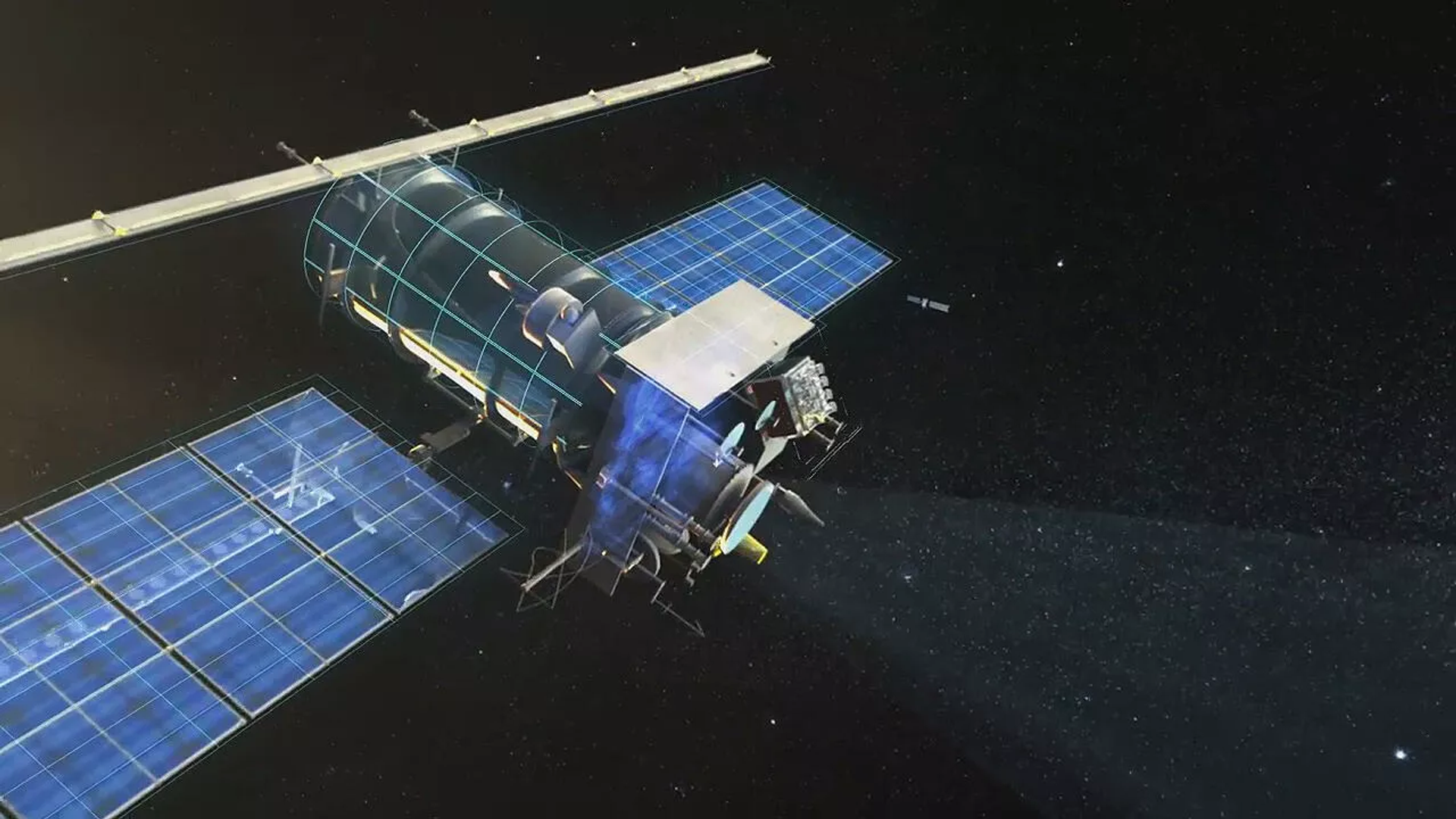Russia Will Have Up to 360 Satellites in Orbit by 2030
06:05 GMT 10.02.2023 (Updated: 17:11 GMT 20.06.2023)

© Photo : Russian Space Systems
Subscribe
MOSCOW (Sputnik) - Russia will be able to increase its orbital constellation to 360 satellites by 2030, but the production must be increased, Roscosmos CEO Yury Borisov has told Sputnik.
"If we do not change anything, we will have a constellation of about 360 satellites. That seems like a lot compared to today's 190. But then we will drop today's 3.5% of space services on the world market to 0.5%. India, which today seriously lags behind Russia, will overtake us by five times in the number of satellites, not to mention America, Europe, and China," Borisov said.
Russia can produce up to 42 satellites a year, while the United States produces up to 1,000 satellites a year and China up to 450 satellites, Borisov said, adding that Russia missed out on the transition to the industrial model of satellite production.
"It is necessary to multiply production today. To reach 250 satellites per year by 2025 and to reach one satellite a day by 2030," the CEO said.
Borisov said that Russia's minimum required orbital constellation by 2030 must consist of 1,000-1,200 satellites.
The CEO noted that Russia invests twice as much in manned space exploration as Europe and the US.
"Historically, we have always paid more attention to manned space exploration. We still spend 35% of our funds on it, while Europe and the US spend 16-18%," Borisov said.
The official added that Europe and the US put more emphasis on building satellite constellations.
Despite the constraints Russia could send a small number of satellites to Iran as the two countries enjoy close ties, official added.
"We have good ties with Iran. In August 2022, we launched a satellite at their request. There are prospects on [supplying] a small number of satellites," Borisov said.
There are also plans to expand this type of cooperation with countries such as Angola, Algeria, Vietnam and several Arab states as well, the Roscosmos chief stated.

